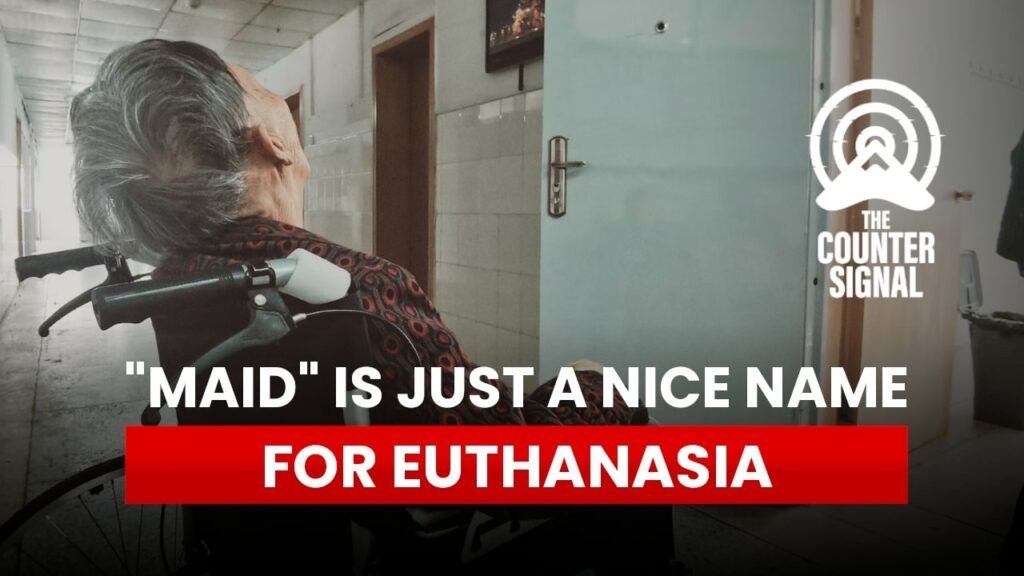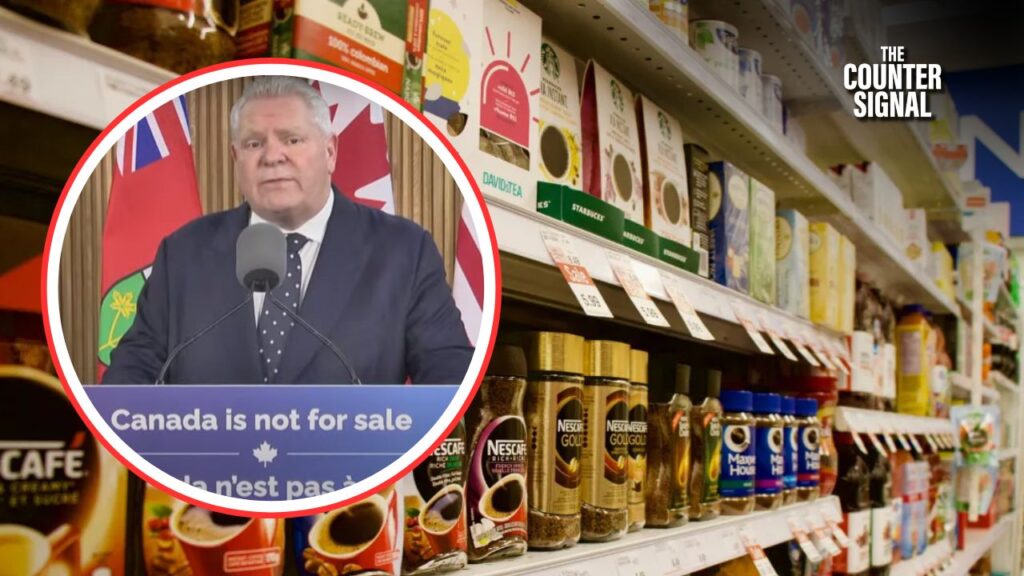Instances of MAID or “medical assistance in dying” have rapidly increased since the practice was legalized in 2016, and it’s time to call it what it is: government-funded euthanasia.

As previously reported by The Counter Signal, medical assistance in dying accounted for 3.3% (10,064) of all deaths in Canada last year. In 2020, there were 7,630 MAID deaths, and in 2019 there were 5,661, meaning after two years of lockdowns, requests to be euthanized have nearly doubled.
According to Health Canada, the following criteria must be met:
- Request MAID voluntarily (self-request only)
- 18 years of age or older
- Capacity to make health care decisions
- Must provide informed consent
- Eligible for publicly funded health care services in Canada
- Diagnosed with a “grievous and irremediable medical condition,” where a person must meet all of the following criteria:
- serious and incurable illness, disease or disability
- advanced state of irreversible decline in capability,
- experiencing enduring physical or psychological suffering that is intolerable to them and that cannot be relieved under conditions that they consider acceptable
As it stands, cancer (65.6% of all requests) is by far the most common reason someone will ask for MAID, and the average age of someone requesting to be euthanized is 76.3 years old.
This doesn’t sound so bad, then. After all, a number of criteria must be met to ensure that MAID is only administered to those who are essentially guaranteed to die, often painfully. Isn’t euthanasia preferable?
Perhaps this would be a worthwhile debate if it weren’t for the increasing number of cases of people with non-terminal illnesses being offered MAID and the fact that, as of March 17, 2023, MAID will be offered to people dealing with mental health issues.
Are you over 18 and feeling depressed? You might just qualify for euthanasia (i.e., state-sponsored, medically assisted suicide).
While guidelines on what would make a person struggling with mental health issues rather than physical illness are still being debated, it’s expected that those struggling with prolonged depression, bipolar disorder, schizophrenia, and PTSD could qualify.
The shift from primarily administering euthanasia to those with terminal illnesses to those struggling with mental health problems has caused many doctors to raise their eyebrows. After all, how would one define “grievous and irremediable” within the context of a psychiatric evaluation? How can you determine that every alternative to remedying one’s mental health problems has been explored?
“I think there’s going to be lots of uncertainty about how to apply this in March 2023,” said Dr. Grainne Neilson, the former president of the Canadian Psychiatric Association. “My hope is that psychiatrists will move cautiously and carefully to make sure MAID is not being used as something instead of equitable access to good care.”
This is an apt point because we know that MAID has been offered to people, particularly impoverished people, when other care could have been provided.
University of Toronto Law professor Trudo Lemmens has noted many such instances that were documented during an organized session regarding MAID in Canada:
“One of the concrete examples that featured prominently was the case of a woman living in poverty who struggled with severe chemical sensitivity and had desperately been trying to obtain social housing adjusted to her medical needs. CTV reported how Toronto physicians ended her life with MAID, at her request. CTV also reported on the case of another woman in a similar situation who was approved for MAID, following a MAID assessment which, in her words, “focused [little] on what services I had, what I needed to achieve some level of normal. Nothing was offered in terms of support.” Fortunately, private charitable fundraising permitted her to move into temporary adjusted housing and to postpone the ‘MAID procedure.’
“Finally, a third report of June 2022 revealed how a woman in her 30s, suffering from a rare but not terminal condition, applied to the British Columbia Fraser Health Authority for MAID in the hope it would lead to more medical or social supports. While she was offered MAID, no additional support of specialized health care was allegedly made available or promised.”
Put simply, it appears the government would rather pay to euthanize someone than dole out money to support their recovery and wellbeing.
More recently, an employee at Veterans Affairs Canada casually offered to euthanize a CAF veteran struggling with PTSD and a brain injury received while serving his country.
Speaking to Global News, several sources from VAC say that the offer to provide medical assistance in dying was entirely unprovoked. The veteran never brought up MAID, and he and his family “were disgusted by the conversation and feel betrayed by the agency mandated to assist veterans.”
Sources say that the veteran had been improving both physically and mentally following the traumatic brain injury and that the casual offer to be euthanized has impeded his progress.
When you hear MAID or even “medical assistance in dying,” it doesn’t sound that bad. It sounds professional, sanitary, and even commonplace. But don’t get it twisted. This veteran was offered euthanasia as a supposedly better option than dealing with his trauma.
And when mental health issues become an acceptable reason to be euthanized, such inappropriate offers will only become more common.









